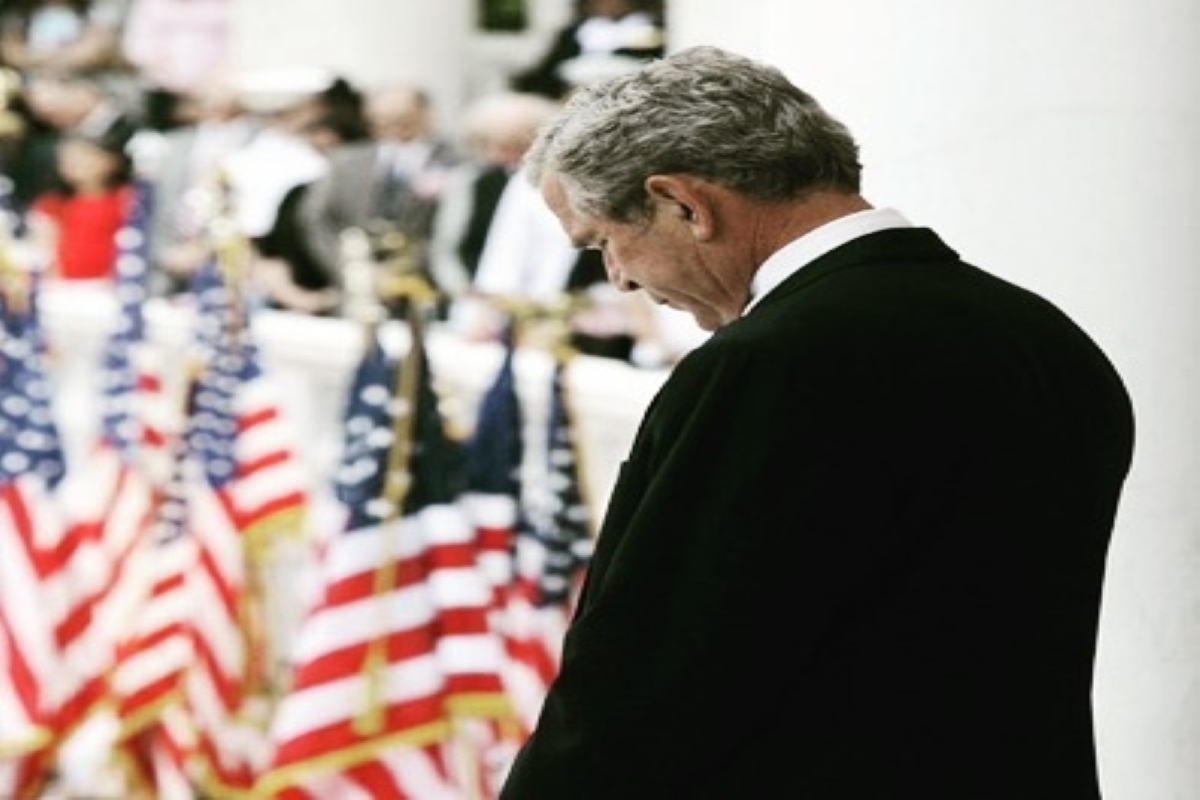Former US President George W. Bush has labelled the withdrawal of US and NATO troops from Afghanistan “a mistake”, in an interview with DW.
“I’m afraid Afghan women and girls are going to suffer unspeakable harm,” he said, adding that he was also concerned for translators and other people who gave support to foreign troops in Afghanistan.
Advertisement
“They’re just going to be left behind to be slaughtered by these very brutal people, and it breaks my heart,” Bush said in an interview to the German state broadcaster Deutsche Welle from his house in Maine.
The comments of the former US President, whose administration began the US-led war against the Taliban in 2001, refer to the hardline Islamic Taliban that are making sweeping gains across the country amid the drawdown of US and NATO forces, set to be complete by September – 20 years after the war began.
Bush sent troops to Afghanistan in autumn 2001, following the 11 September terror attacks in the US.
Bush added that he believed German Chancellor Angela Merkel “feels the same way” about the pullout.
When DW asked Kabul-based journalist Ali Latifi about Bush’s comments, he said: “I think it’s very interesting that he’s suddenly, you know, concerned about women and children,” adding, “his war made a lot of widows and made a lot of children orphans.”
US and NATO forces began withdrawing from Afghanistan in early May.
The US military said recently that troop withdrawal is more than 90 per cent complete and President Joe Biden said it would be wrapped up by 31 August.
Political and military control have been handed to the Afghan government, which was meant to be carrying out peace talks with the Taliban.
But the Taliban have been carrying out an offensive, particularly in Afghanistan’s rural areas, bringing more territories under its control.
On Wednesday, they reported taking control of the strategic Afghan border crossing to Pakistan at Spin Boldak on the border with Pakistan.
Biden last week ruled out further intervention in the country, saying the US had achieved its objectives of getting “the terrorists who attacked us on 9/11 and to deliver justice to Osama Bin Laden, and to degrade the terrorist threat”.
He said: “We did not go to Afghanistan to nation-build. And it’s the right and the responsibility of the Afghan people alone to decide their future and how they want to run their country.”
Asked about the legacy of the war in Afghanistan, journalist Latifi said: “The fact that we’re having these questions is the legacy, right? The fact that the Taliban is still able to pose a threat to the government and to security forces, the fact that we’re still having these battles and the fact that we’re still asking what might happen to women, to children, to interpreters, you know, 20 years down the line – that is the legacy.”











